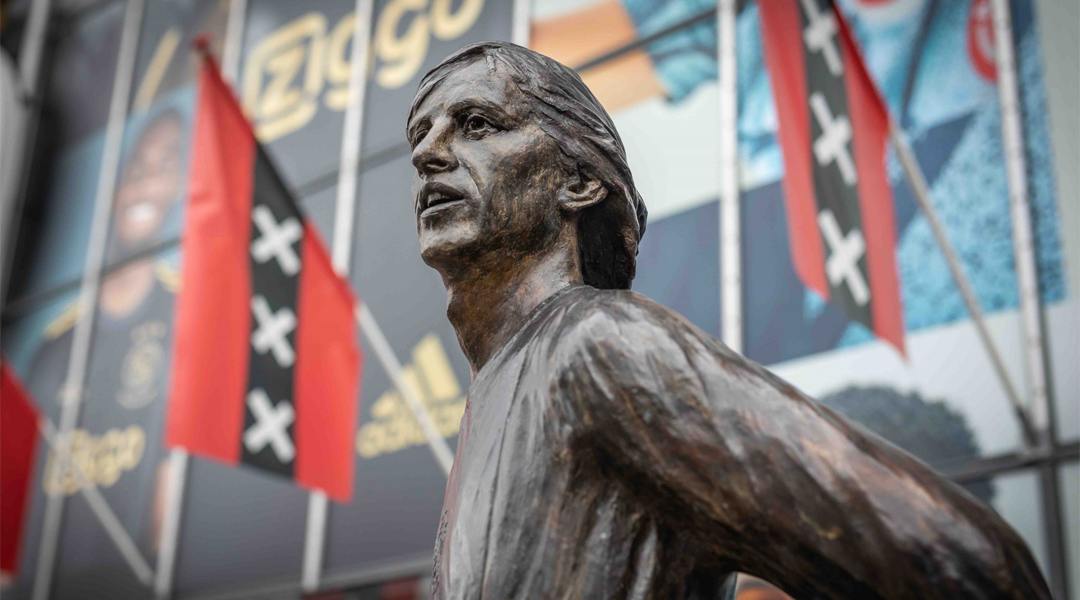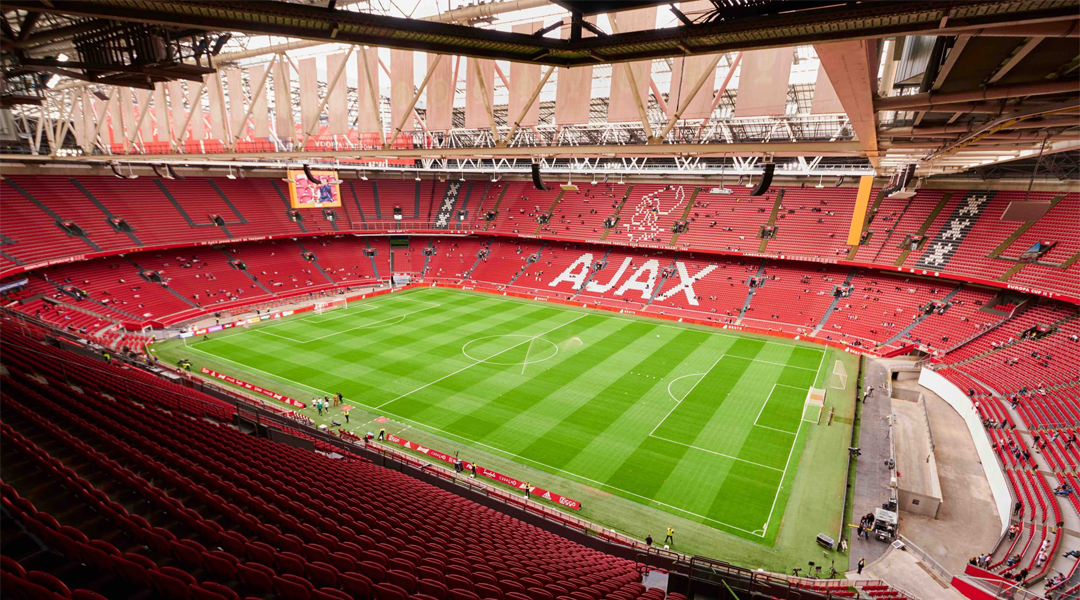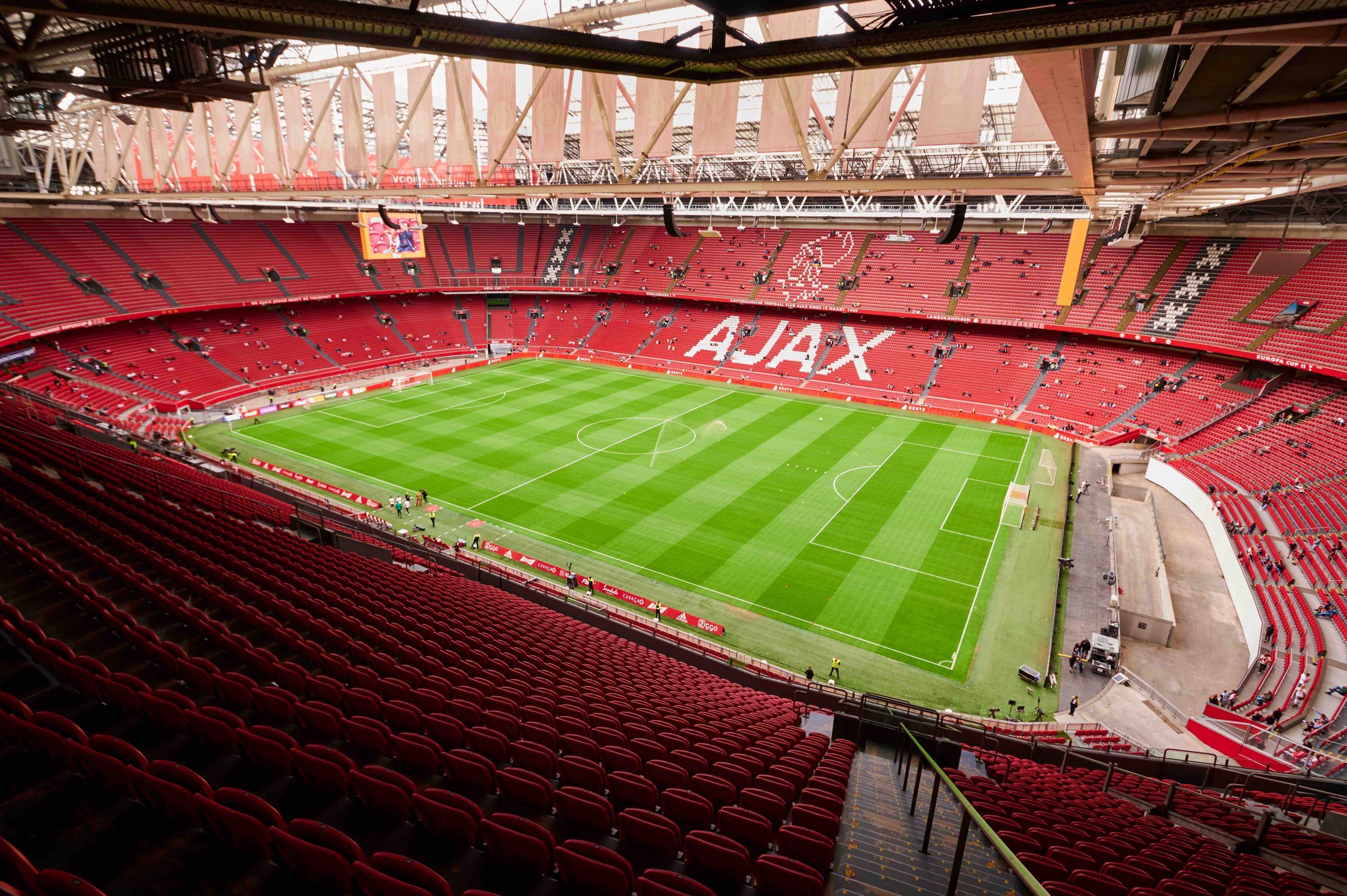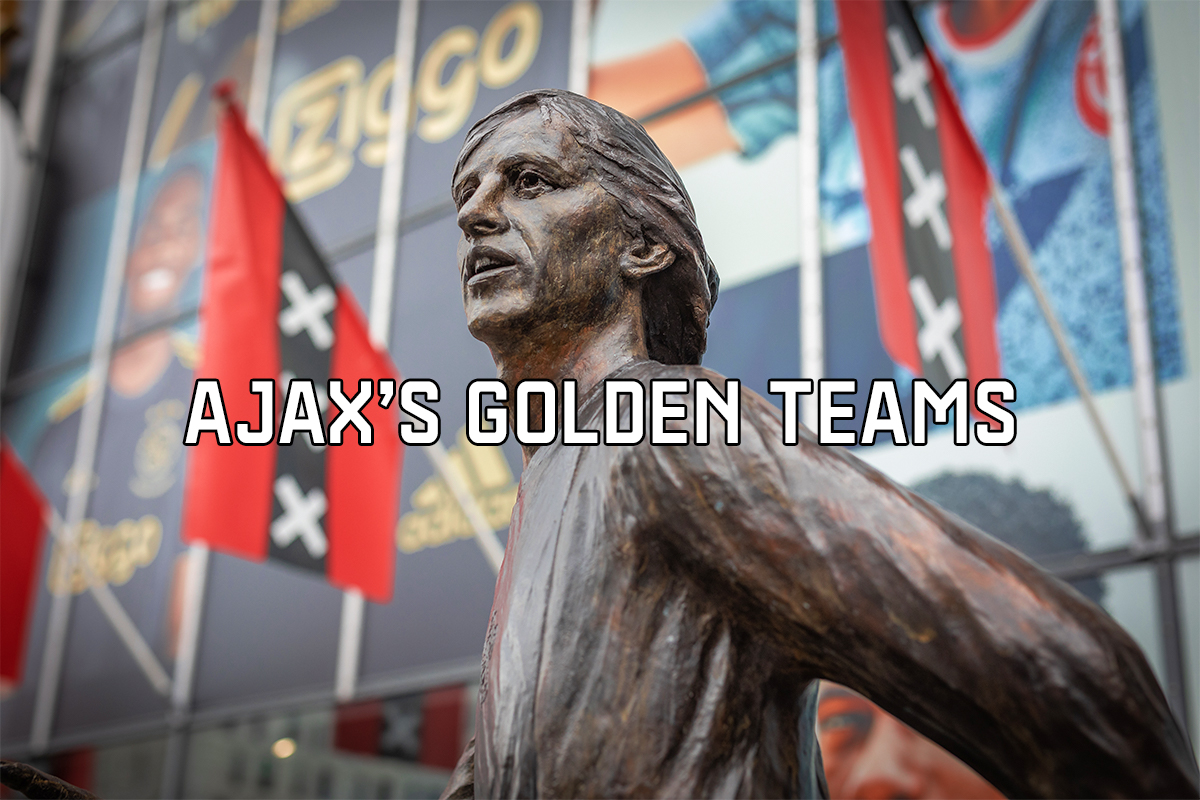Some of the world’s greatest players have come from Ajax’s fabled academy. They seemingly have a conveyer belt of talent, producing players to fit their unique footballing philosophy. Of all the teams they’ve had, two stand out. Their all-conquering sides from the 70s and 90s.
Ajax in the 70s
The Ajax team of the 70s changed football. While they didn’t come up with the idea of fluid, attacking football, they did perfect it. European football had been dominated by defensive tactics, but Rinus Michels came in and blew Helenio Herrera and his ‘Catenaccio’ out of the water.
With his young protegee, Johan Cruyff leading on the pitch, Michels had the perfect formula for his preferred brand of football. Although the movement was fluid, the formation was set in stone. Very rarely did they move away from 4-3-3, their flexible system came from the versatility of the players. Most of them could play competently in multiple positions.
Michels took over in 1965, at a time when bitter rivals Feyenoord were the outstanding club side in the Netherlands. It took some time for the famous coach to implement his ideas and Ajax were left reeling when Feyenoord became the first Dutch club to win European football’s ultimate prize in 1970.
When 1971 came around, everything changed. Thanks to players like Cruyff, Neeskens and Swart, Ajax had been transformed from relegation candidates to the best team in Europe. Ajax claimed their first European Cup trophy after beating Greek side Panathinaikos 2-0 at Wembley.
At the end of the season Barcelona came calling and Michels departed. Romanian coach Stefan Kovacs came in and built upon the foundations given to him by his predecessor. In the 1971/72 European Cup final, they came up against Inter Milan, the club that had been so successful with their defensive approach. The torch was metaphorically passed as Ajax won 2-0 once again, Cruyff getting both goals.
Ajax’s third and final European Cup of the 70s came in the season after. Their route to the final was far harder than the previous two years. Cruyff and co had to overcome Real Madrid and another great side of the decade, Bayern Munich before facing Juventus in the final. Ajax defeated the Old Lady 1-0 after Rep scored in the fifth minute, winning their third European Cup in a row.
At the end of the season, Cruyff lost the captaincy election for reasons that were never fully divulged and joined his ex-manager, Michels in Barcelona, where he forged a new legacy. Ajax didn’t win another European Cup until 1995, but they cemented their position as the best side in the Netherlands.

Ajax in the 90s
From one great Dutch coach to another, Louis van Gaal was made Ajax coach in 1991, being promoted from their youth teams. In his early days as a manager, van Gaal was very much created in the mould of Johan Cruyff, adopting the ideals of the great man and his mentor, Michels.
Much like the side from the 70s, van Gaal played ‘total football’, sticking fervently to his preferred 4-3-3. While Michels and Cruyff excelled at judging players by eye, van Gaal was a committed note-taker. He was ahead of his time, using statistics and advanced coaching methods to get the very best out of his players. Van Gaal and Ajax improved upon the already impressive ‘total football’ philosophy.
In his first season, van Gaal led his Ajax team to their first UEFA Cup trophy, beating Torino in the two-legged final. The first game in Ital ended 2-2, with Wim Jonk putting the visitors ahead after four minutes. The Italians then equalized but Ajax took the lead a few minutes later. Torino did equalize again but Ajax had the advantage on away goals. The second leg ended 0-0 and Ajax lifted the trophy.
The coming summer was van Gaal’s first opportunity to dip into the transfer window. Although his transfer policy at the time was unpopular, favouring young, home-grown talent, it was ultimately successful. In came a 19-year-old Marc Overmars and sublime, Finnish playmaker Jari Litmanen. Ronald De Boer also returned after been sold 18 months prior.
PSV and Feyenoord had shared the Eredivisie since the 1989/90 season, but Ajax were a club on the up. The following summer transfer window was just as controversial and successful as the last. One of Ajax’s greatest ever youth products, Dennis Bergkamp was sold to Inter Milan for a massive £7.1 million, a decision that Ajax fans were understandably furious with. Frank Rijkaard returned from AC Milan and was accompanied by Nigerian pair Findi George and Nwankwo Kanu.
With no league title to boast of, the pressure was on for van Gaal and his lads. Litmanen was the man chosen to take over Bergkamp’s number 10 shirt and he was amazing, scoring 26 goals in 30 appearances. At the back, Rijkaard and his fellow defenders conceded a poultry 26 goals. Ajax won the league and van Gaal was proven right.
Everything was set up Ajax to have an amazing season in 1994/95 and that’s exactly what happened. Building upon their impressive league win the season before, van Gaal and his boys went one step further.
Ajax lost just one game all season in 1994/95: a 2-1 extra-time defeat to Feyenoord in the KNVB Cup quarter final. Everything else was perfect. To this day, this team are the only side to win the Eredivisie undefeated, an incredible feat.
It was in the Champions League that Ajax were finally confirmed as the best team in Europe once again. The Dutch club overcame Hadjuk Split and Bayern Munich to set up a final against another great club sides of the 90s, AC Milan. It was a tight game with the only goal of the game coming in the 85th minute, thanks to 18-year-old substitute Patrick Kluivert. Ajax were once again on top of the world.
Great players and great teams have come and gone for Ajax since then, most notably in 2019/20. Hopefully they’ll be winning Champions Leagues again soon.


